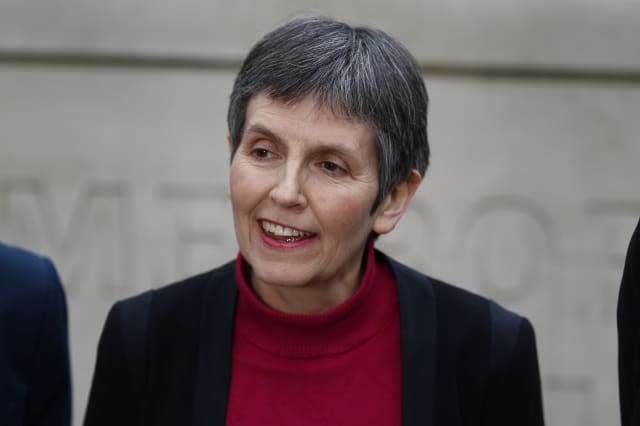'Westminster terrorist might not have been stopped any earlier by armed officer'

An armed police officer could not necessarily have intervened to stop the Westminster terror attacker earlier, the new Metropolitan Police chief has said.
Cressida Dick said it would be inappropriate to comment extensively on "what ifs" while reviews into the attack four weeks ago continue, but "we need to look at the lessons from what happened".
Five people were killed, including Police Constable Keith Palmer, and dozens of others injured when Khalid Masood, 52, drove a car into pedestrians on Westminster Bridge before entering the grounds of the Palace of Westminster with a knife, where he was shot dead.
The incoming commissioner joined presenter Nick Ferrari on Leading Britain's Conversation (LBC) radio, who asked her why the first point of contact with the terrorist was not an armed officer.
In one of her first interviews in her new role, Ms Dick said: "There were several armed officers within the vicinity, several armed officers protecting Parliament, we did protect Parliament.
"It's an absolute tragedy that Keith was killed.
"I don't think we can be certain, but let's see what all the reviews say, but I really don't think we can be certain that an armed officer would necessarily have been able to protect themselves or to intervene earlier."
Ms Dick's first day as the new Scotland Yard chief saw her attend the funeral of murdered Pc Palmer, 48, a husband and father.
Looking forward, she said: "We need to be alert, and on the other hand I don't think people need to be going around alarmed all the time.
"We want people to be going about their daily business as London showed, frankly, within hours and days of that terrible attack."
She said she was "thrilled" to become the first female police commissioner and acknowledged the Met faces a number of challenges, taking calls from listeners about stop and search tactics, gang warfare, issues of trust, diversity and the impact of cuts on policing.
Asked if there would ever be routine arming of the police, she replied: "I absolutely hope not", adding that one of the main reasons for police officers' close relationships with the communities they serve was due to being unarmed.
The commissioner said public confidence in policing was high and rising, but acknowledged there was still "some way to go for the Met" in terms of trust.
Ms Dick was thrust into the public eye in 2005 after she was in charge of the operation that led to the fatal shooting of Brazilian Jean Charles de Menezes, who was wrongly identified as a potential suicide bomber.
A jury later cleared Ms Dick of any blame in his death, and she said she did not feel her link to the incident had got in the way of her work with the capital's diverse communities, and hoped it would not in future.
The new Met chief also expressed a desire to "reset" the force's relationship with the media, referencing previous "bumpy" times.
The commissioner was also quizzed about how money had previously been spent by the Met, as she acknowledged the pressure of budget cuts.
She defended the amount spent investigating phone hacking, saying officers did a "diligent" and "proportionate" job and that the public had felt very strongly about it.
Ms Dick was then asked about how wise it was to spend millions investigating the allegations of claimant Nick regarding a VIP paedophile ring.
Scotland Yard faced a storm of criticism over the £2.5 million Operation Midland, which closed last year without a single arrest.
She said: "I don't want to get into second guessing what happened back then.
"These cases are incredibly difficult. Whatever you do, it's too much for some and not enough for others, there's no doubt about that.
"There have been lessons learned from that case."


